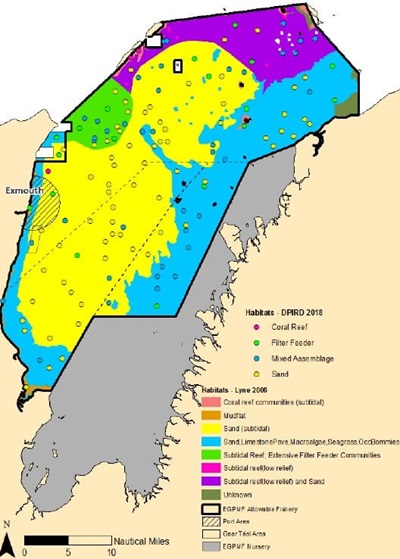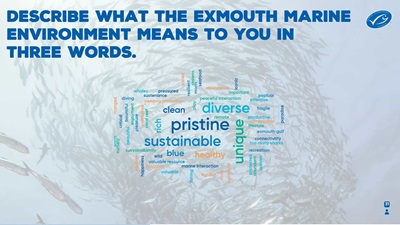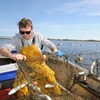In 2015, the two fisheries achieved MSC certification, testament to their strong vision, leadership, and collaboration with stakeholders. This was a huge milestone on their sustainability journey – but not the end of the road. The certification was subject to the commitment to further improvements through fishery action plans. These would involve the fishing industry, the regulator (the Western Australia Department of Primary Industry and Regional Development - DPIRD), and wider stakeholder groups, working together to address 13 conditions of certification.
These conditions were spread across the MSC Standard’s three principles of healthy target stocks, minimising environmental impact, and robust fisheries management. The fisheries were tasked with closing these conditions by 2020.
I’ve spent six years supporting the sustainability efforts of these two world-leading prawn fisheries. Reflecting on their recertification this week, what stands out is how incredibly hard the fisheries have worked to address all of the 2015 conditions. They are now moving forward into the next five year certification cycle with no new conditions. This improvement journey is the fisheries to celebrate, but one that can be measured against the independent lens of the MSC program. Here are five things which stand out to me the most.
1. They’re committed to understanding habitat interactions
Trawl fisheries have higher impacts on marine habitats (the seabed) and non-target catch (bycatch) than other fishing methods. Under an MSC lens, such fisheries have to demonstrate that these impacts are within scientifically acceptable limits; are subject to management which protects vulnerable elements of the ocean ecosystem; and are underpinned by good information and data.This approach means good information will inform robust and adaptive fisheries management decisions, which in turn sustain a healthy marine ecosystem. For Exmouth Gulf, an example of this is a 2018 validation survey which helped to verify a 2006 habitat map identifying the four major habitat types in the gulf: mixed habitat, sandy habitat, filter feeders, and corals.
These habitat surveys have helped the regulator and fishing industry to demonstrate that the spatial closures in Exmouth Gulf continue to adequately protect sensitive habitats such as seagrass and coral reefs. They also show that the majority of fishing activity (72.1%) occurs on sandy habitats which are less susceptible to the impacts of trawling.
By closing the areas of Exmouth Gulf that are more vulnerable to the impacts of trawling (30% of the gulf is closed to fishing, and less than 50% of it is actually fished), the trawl fishery can operate sustainably, while the trawl footprint is continually monitored to ensure any changes are within the ecological tolerances of the ecosystem.

DPIRD Exmouth Gulf habitat map, click on the image to view full size
2. They’re lowering interaction rates with protected species
Wild catch fisheries will always have some level of environmental impact with other species. While that impact may be scientifically acceptable, for species with inherent vulnerabilities such as endangered, threatened, or protected species, we want to see fisheries working towards the lowest possible levels of interaction.In Shark Bay, this started with investing in the education of trawler crews, through an observer program to better understand interactions with various species of sea snake. Again, by using good information to inform good management decisions, the Crew Member Observer Program (CMOP) with the University of Adelaide has increased understanding of sea snake interactions in Shark Bay. This has led to better handling practices on board fishing vessels, reducing the number of sea snake deaths.
Since the start of Shark Bay’s MSC journey in 2014, reported interaction rates have improved and the survival rate has remained high at around 90% (up slightly from 88% in 2015). Better reporting has given regulators greater confidence around the sea snake species the fishery interacts with, and that such interactions are within acceptable limits. Fishing vessels continue to find innovative ways to lower interaction rates.
3. They’re engaging with their communities
The penny dropped on a recent visit to Exmouth, where I spoke at a community forum focussed on the sustainability of Exmouth Gulf. Around 60 passionate people gave up their evening to join a Science for Sustainability seminar, and hear from the operators of the prawn fishery, the regulator (DPIRD), and the MSC on what makes the fishery sustainable.It reminded me that sustainability is not a one-off investment. A sustainable fishery needs to walk the walk before backing this up by talking the talk. And to talk in a clear and sympathetic way to an audience whose interest in marine environments goes beyond pure scientific objectivity. These communities often rely on a healthy marine environment for income, for food, and for their spiritual wellbeing. It’s brave and courageous for a fishery to proactively engage with their local community, by acknowledging and then learning from past mistakes, showing ongoing transparency regarding their environmental impacts whilst demonstrating genuine stewardship for future the health of our oceans.

Insights from the Exmouth Gulf community forum, click on the image to view full size
4. They value capacity building and ongoing education
In preparation for their reassessment, which would be under an updated version of the MSC’s Fisheries Standard (version 2.0), the Exmouth Gulf and Shark Bay fisheries participated in a two-day technical workshop in Perth, WA, in 2018. Representatives from the fishing industry, regulators, and non-governmental organisations (NGOs) joined MSC facilitators to share best practice approaches to minimising environmental impacts in prawn fisheries.The goal was to offer stakeholders a chance to better understand the MSC’s new technical requirements, with a focus on the protection of Vulnerable Marine Ecosystems (VMEs), and for MSC certified fisheries to hear more about innovative approaches to improved selectivity through fishing gear modifications. The opportunity to learn more about how the MSC program evolves to align with global best practice encouraged the fisheries to make further stepwise improvements.
5. They’re helping increase supply and drive demand for sustainable seafood
As the festive season kicks into high gear, Christmas prawns are well and truly on the menu: 40% of prawns produced and sold in Australia each year are eaten over the Christmas period. I’m reassured that with more than 50% of Australia’s wild prawn catch coming from MSC certified fisheries, wild Aussie prawns will continue to be a festive staple for generations to come.Exmouth Gulf and Shark Bay play a vital part, supplying over 2,000 tonnes of certified sustainable prawns each year to Australian and export markets. Their tiger prawns, king prawns, and endeavour prawns are wildly popular in Australia, from the BBQ grill to high-end restaurants. Seafood lovers can recognise and reward these sustainable prawn fisheries by looking for the MSC blue fish tick when buying their festive prawns.
Consumer demand helps drive other fisheries to prove their environmental credentials through the lens of the MSC program, and gain access to the same levels of market recognition. In this way, market forces help drive environmental improvements in our fisheries Turning this theory of change into actual change for the benefit of our oceans wouldn’t be possible without the leadership of fisheries like Shark Bay and Exmouth Gulf. And that’s something worth celebrating.
Click to view a poster created for the Exmouth Gulf community forum.

.jpg?sfvrsn=f044e362_0)

